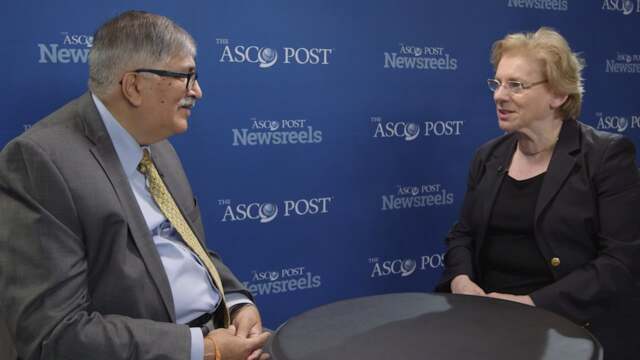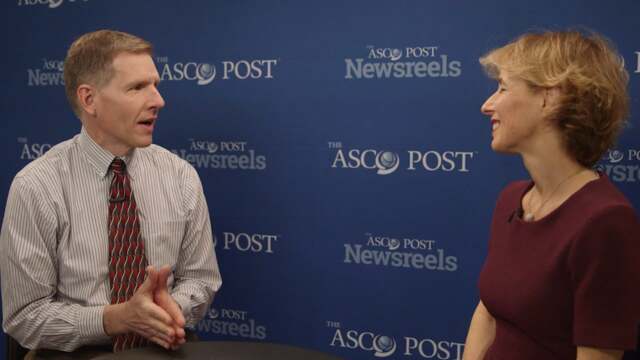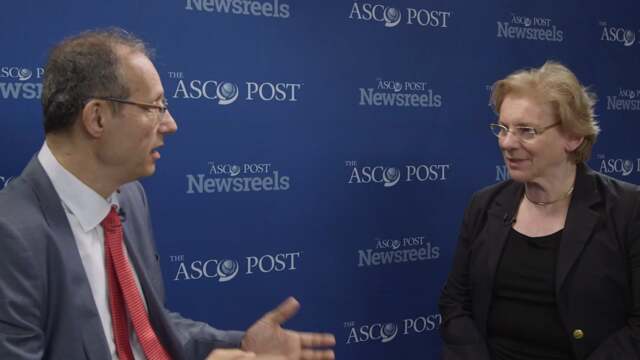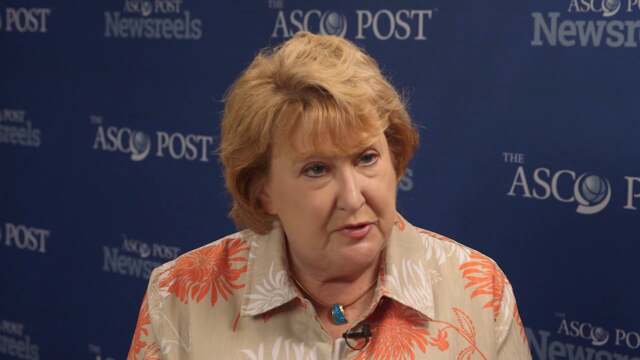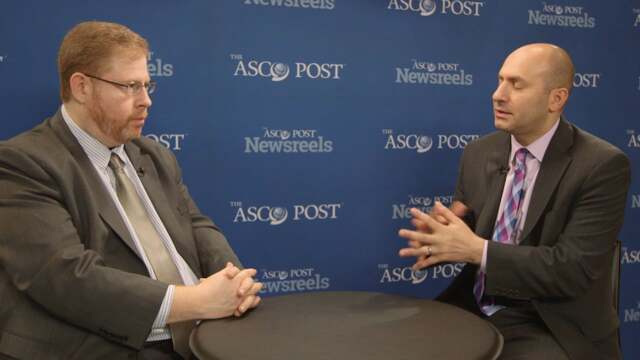Usha Menon, MD, on Ovarian Cancer: Advances in Early Detection
2016 ASCO Annual Meeting
Usha Menon, MD, of University College London, discusses a significant new version of a screening test for ovarian cancer that may reduce death from the disease (Abstract 5507).
Rakesh Chopra, MD, of the Artemis Health Institute, and Mary Gospodarowicz, MD, of Princess Margaret Hospital, discuss oncology from an international point of view.
Anthony J. Olszanski, RPh, MD, of Fox Chase Cancer Center, and Caroline Robert, MD, PhD, of Gustave Roussy and Paris-Sud University, discuss study findings on pembrolizumab and the overall survival benefit for patients with advanced disease (Abstract 9503).
Nagi S. El-Saghir, MD, of the American University of Beirut, and Mary Gospodarowicz, MD, of the Princess Margaret Hospital, discuss oncology from an international point of view.
Patricia J. Goldsmith, Chief Executive Officer of CancerCare, which provides free, professional support services to anyone affected by cancer, discusses findings from six distinct surveys with input from more than 3,000 individuals at varying stages of their cancer experience.
Jonathan E. Rosenberg, MD, of Memorial Sloan Kettering Cancer Center, and Toni K. Choueiri, MD, of the Dana-Farber Cancer Institute, discuss mutation burden—its role in response to treatment with PD-L1 immunotherapy and its impact on progression-free survival and overall survival, as well as the link between intrinsic expression subtypes and treatment outcome with atezolizumab (Abstract 104).
